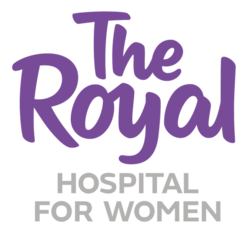Breastfeeding
Benefits
- Breastfeeding provides enormous health benefits for mothers, babies and families. Human breastmilk is the ideal food for babies, and exclusive breastfeeding is recommended for the first six months of life.
- Breastmilk helps to protect babies against infections in the middle ear, chest, gut and urinary tract. Children who are breastfed are less likely to develop diabetes, obesity, skin allergies, asthma and bowel disease in later life. It may also provide health benefits to the mother in terms of decreased risk of breast and ovarian cancer, type 2 diabetes, rheumatoid arthritis and osteoporosis.
- Breastfeeding encourages bonding between mother and baby from birth, and helps eyesight and brain development in babies.
Which drugs are safe?
- Most drugs are safe for breastfeeding mothers, though there may be preferred drugs within a drug group. (There are very few drugs which cannot be taken in breastfeeding, and weaning is rarely necessary.)
- Occasionally mothers may be advised to cease breastfeeding due to the possible harmful effects of a medication to their babies. This would include mothers who need treatment with chemotherapy agents (drugs for cancer), ergotamine derivatives (eg bromocriptine), gold salts, iodine, amiodarone, radiopharmaceuticals (nuclear medicine scans), and mothers who use illegal or street drugs.
- When a mother has a single high dose of medication, it may be recommended that she cease feeding for a short period, while expressing and discarding her breastmilk.
- The risks and benefits of the medication, and also the benefits of breastfeeding should be taken into account. It is important to consider the age and health of the baby, as newborn or unwell infants may be more susceptible to drug effects.
- Some medications may reduce milk supply, and are best avoided in breastfeeding mothers.
- Other medications may increase milk supply, and can be useful to breastfeeding mothers.
Finding information
- There is no categorisation system for medications in lactation. The Australian “Prescribing Medicines in Pregnancy” categories do not apply to breastfeeding.
- The information supplied with medications will often warn against use in lactation. If you are concerned, please call MotherSafe for more information. MotherSafe counsellors consult medical journals, databases and textbooks for up to date information, and can help a mother to evaluate the risks and benefits of her unique situation.
Specific topics and links
Increasing your supply of breastmilk.
- Increasing your supply of breastmilk
- Low Milk Supply (The Royal Women’s Hospital Melbourne)
Alcohol consumption and breastfeeding
- Alcohol Consumption in Breastfeeding
- Alcohol and Breastfeeding (Australian Breastfeeding Association)
Others
- Breast and Nipple Thrush (The Royal Women’s Hospital Melbourne)
- Breast care after the loss of your baby
Other breastfeeding support
MotherSafe counsellors are not able to answer general questions about infant feeding or health. Refer to your General Practitioner or Early Childhood Centre for general information.
Other sources of information are available on the RHW Infant Feeding page.
Note:- The inclusion of these links does not imply any endorsement or support by South Eastern Sydney Local Health District or NSW Health or the State of New South Wales. See our Disclaimer for more information.
